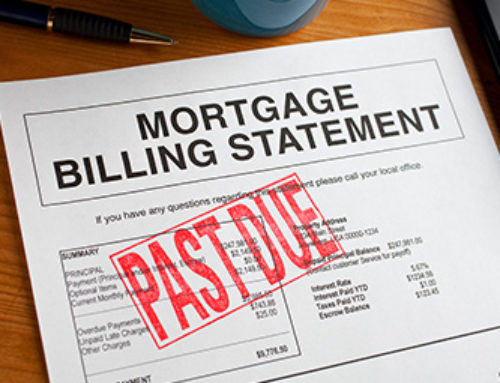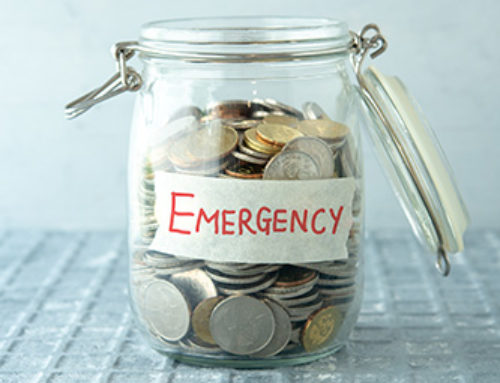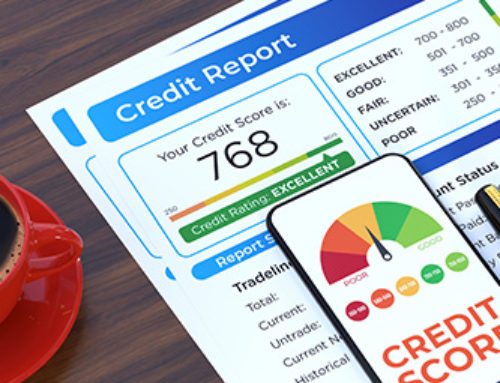Money is one of the leading causes of stress for many Americans. Struggling to get out of debt can have a huge impact on mental health. If you’ve ever dreaded a phone call for a debt collection or receiving an invoice received in your mail, you will know this firsthand. Before COVID-19, 56% of Americans said their debt negatively impacted their lives. Now that more than 36 million Americans are losing their jobs due to the COVID-19 pandemic, stress and anxiety levels are likely to rise. Watching your debt rise while you struggle to make your monthly payments can make you desperate and seriously affect your quality of life.
It is rare for someone not ever to not experience financial challenges at some point in their lives. Problems arise, jobs disappear, marriages fail, people get sick, their homes lose value, and bills pile up. No one is immune, especially during and after a pandemic. The good news is that there are a lot of things you can do to help yourself when you are struggling with debt-related stress.
In this article, we will look at dealing with stress and the emotional and mental issues that come with debt.
“Debt Stress Syndrome”: How Debt Can Cause Health Problems
Lack of concentration, sleepless nights, and changes in eating habits are just some of the physical symptoms that can be evident from debt-related stress. This has given rise to what the medical community often calls “debt stress syndrome.” Researchers have documented the effects of debt on health, and it is no surprise that studies show that money problems can increase your stress levels and affect your health.
Struggling with your finances for a prolonged time up to months or even years can lead to high blood pressure, high cholesterol, and diabetes. Being under tremendous pressure can also lead to a weakened immune system, making you more vulnerable to disease.
Apart from your physical health, the stress of debt can also affect your mental and emotional health. In 2014, a team of Finnish researchers conducted a study that showed that people struggling with debt were more likely to experience depression than those who were financially free. A 2012 study from the University of Nottingham also showed the link between debt and stress. The study demonstrated that people struggling with their finances were two folds more likely to experience a variety of mental health issues, including depression, suicidal thoughts, and anxiety.
Debt stress can cause health problems and affect our personal and professional lives. For this reason, the stress of debt is something that needs to be acknowledged and dealt with. Here are five things that can help you manage your finances and relief your debt stress.
Face Your Money Problems Head-On
When you are stressed about your debt, acknowledging your money problems head-on is the first step in finding a solution. It is easier to stick your head in the sand and pretend everything is fine, but you will only be setting yourself up for more stressful situations if you continue to ignore your growing financial difficulties.
Be honest with yourself about how much debt you owe and to whom. This honesty doesn’t just apply to yourself; it also applies to your partner, family, and loved ones. If you are not open with your partner and family about your spending habits and current financial situation, it can create tensions in your relationship that can further increase your stress level.
Get your paperwork together and make a list of all your creditors and how much you owe each of them. You may be surprised at how much you end up owing, but take a deep breath and know that you have just taken the first step to paying off debt and relieving stress.
Make A Debt Settlement Plan
Once you have made your list and known how much you owe and to whom, you can develop a debt repayment plan. Creating a plan to get rid of your debt will help relieve mental and emotional tension while giving you the hope and motivation you need to break free financially. Once you have a plan in place, you will feel immense relief knowing that there is a light at the end of the tunnel and that you are taking the necessary steps to get there.
The first thing to do is to rank your debt in order of importance. The priorities will be different for different people, so you need to draw your scale of preference to decide which debts you want to pay off in full first, then you can set a budget. A budget ensures that you are living within your means and gives you a set time frame for when you can expect the debts to have been fully paid off. If your income is not enough to cover all your expenses, you will need to adjust your budget. This is where a credit counselor can help.
Now that you know how much money to work with, you can strategically start paying off your debt. Some people believe that the best way to pay off debt is to make the required minimum payments with the lowest interest rate and maximize your debt payments with the highest interest rate. Once the debt is paid off, use that extra money to pay off the debt at the next higher interest rate. An accredited credit counselor can also help you create a debt settlement plan.
Watch Your Spending Habits and Make Changes
One way people often deal with debt stress is through retail therapy. There are many ways to deal with debt stress, and one of the most common ways to find comfort during stressful times is retail therapy. Research has shown that the more overwhelmed we are, the more likely we are to buy something to feel better. While buying something beautiful can relieve stress in the short term, that euphoria is only temporary. If these unnecessary expenses continue, it will undoubtedly lead to more money problems, adding further stress in the long run.
If you want to reduce your stress level, now is the time to review your spending habits to determine if you are an emotional consumer. If you tend to turn to credit cards whenever you feel bad, there are healthier ways to manage and spend your money, which have the added benefit of keeping debt stress under control.
So, the next time you find yourself feeling inclined to spend money that you don’t have, pay attention to your emotional drives. If you are feeling anxious, avoid going to the mall. Instead, go to the gym to work off the tension. If you are upset, avoid shopping online and call a close friend to talk to them about anything bothering you. Paying attention to your emotional drivers can help you make more informed decisions that will save you money and keep the stress of debt at bay.
Take Care of Yourself
When worries or fears overwhelm us, we tend to put our personal needs aside while devoting all our time and energy to finding solutions to our problems. While working on a solution is essential for overcoming debt-related stress, it is equally important not to neglect our health.
When you find yourself in a difficult financial situation, it is a good idea to take some time to relax, have fun, and do all you can to distract yourself from the issues that weigh you down. If you are on a budget, it might not be possible to start a new hobby or go on vacation on the weekend, but there are plenty of alternatives that won’t cost you money.
For example, small daily rituals, like meditating every morning, taking a hot bath on Sunday evening, going for a walk after dinner, can make a big difference in reducing your stress level. If you enjoy an activity, make out time to do it. These activities can rejuvenate your mind and body.
Many of us have found ourselves in difficult financial situations, and we don’t have to punish ourselves for it. Debt is a stressful situation in itself, and if you continue to abuse and punish yourself for your past financial decisions, it will only make a predicament more difficult. The good news is that you can manage debt stress with strategies like moderate exercise, plenty of downtimes, and a nutritious diet. So, start taking steps to prioritize yourself. You will be surprised how just a few lifestyle adjustments can make you feel so much better.
Get Help with Your Debt from A Credit Counseling Service
Debt is an issue that many of us don’t like to discuss, so we tend to keep our struggles to ourselves and carry the burden on our own. This creates a constant state of worry and fear that can affect our health, relationships, job performance, and daily life.
When people are stressed, they often turn to a doctor or even a psychiatrist for help. But if your worries or fears stem from financial issues, getting help doesn’t seem so easy. Many people don’t know that you can get help with your debts through a credit counseling service.
If you have money problems and have been dealing with the stress of debt for a while, the best thing you can do for yourself and your finances is to call a reputable, purposeful credit counseling company. A credit counselor will take a close look at your finances, help you budget, and provide you with a list of options that can help get your finances in order.
Once you have a plan, you will be relieved to know that you are on your way to becoming financially free. If you would like to make an appointment to speak with one of our advisors, give us a call, and one of our customer advisers will be happy to assist you.
It Is Important to Know How to Deal with Debt Stress Before It Gets Out of Hand
When your finances deteriorate, your personal and professional lives can easily follow suit unless you know how to handle the stress of debt. Ignoring your money problems seems like the easy thing to do, but it will only prolong and worsen your financial issues.
Debt doesn’t just limit your financial freedom; the constant worry and fear about your financial situation also put pressure on your mental, emotional, and physical health. If your financial problems are affecting your health, you may need to meet with a reputable credit counselor.
A credit counselor can help you set a workable budget, restructure your debt so that your monthly payments are manageable, and point you to tools and resources to help you stay on top of your finances. Your debt won’t just disappear, but knowing you have a plan will go a long way in relieving the stress of your debt.
When you’re ready to put your debt behind and become stress-free, Reb0und is here to help you. No matter your situation, our counselors are willing to listen to you and help you forge a way out of your financial mess. Contact us today and begin your journey to a financially secured future.



